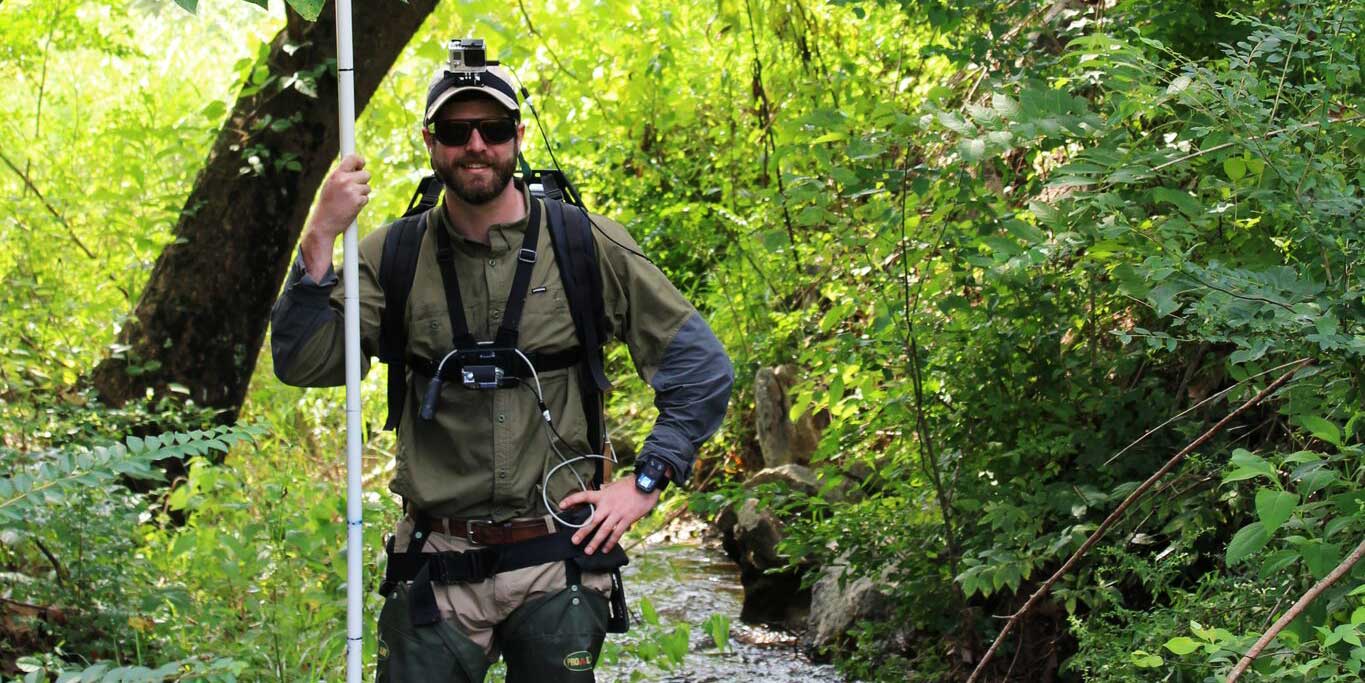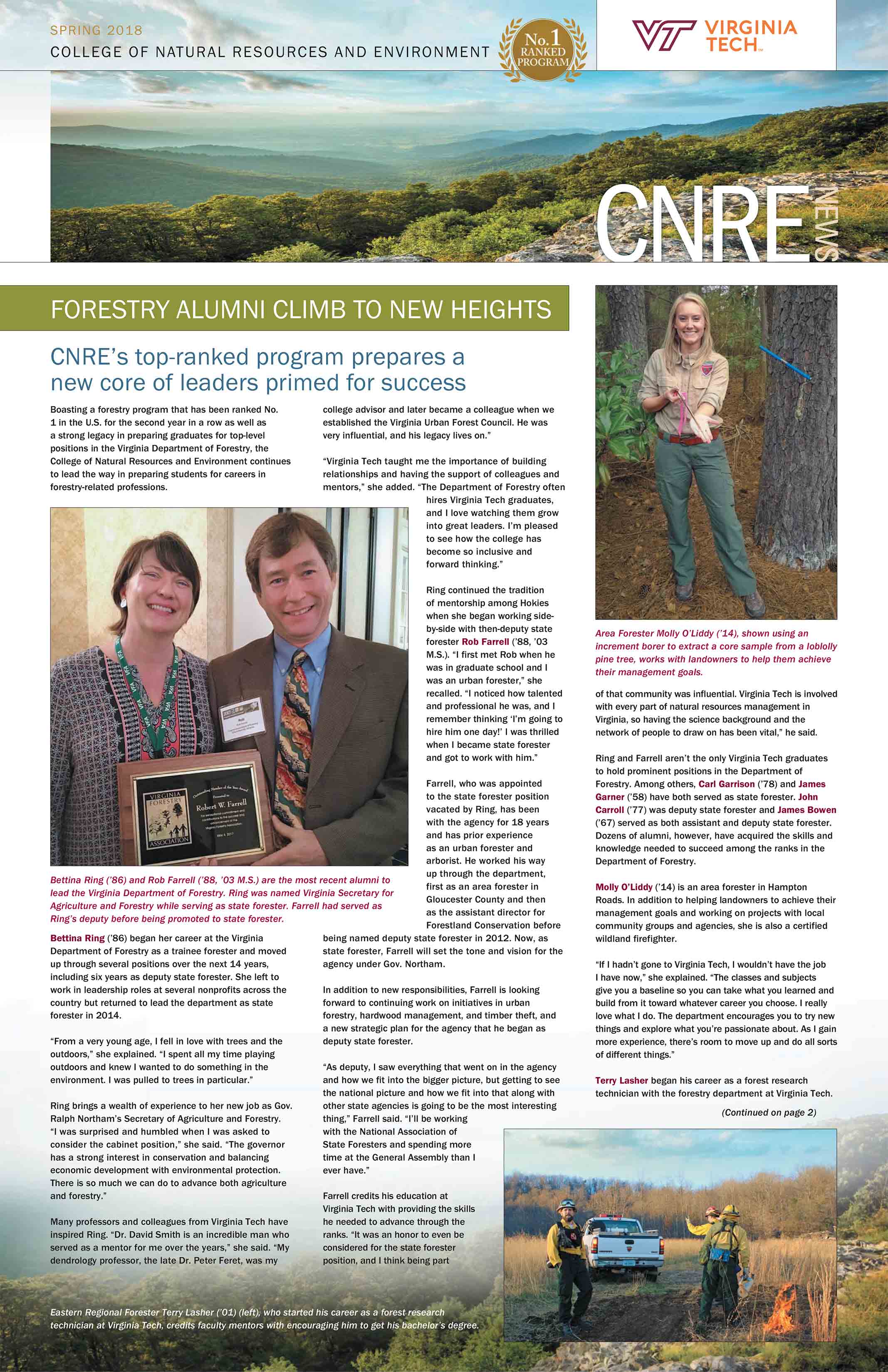Famularo uses coursework in development of portable mapping system
May 15, 2018
Joe Famularo

Joseph Famularo (’17 B.S. water: resources, policy, and management) put his studies into action right after graduation in a Science Undergraduate Laboratory Internship at the U.S. Department of Energy’s Oak Ridge National Laboratory in Tennessee. He hiked along streams, collecting data that became a high-resolution microhabitat suitability model. He used a geospatially autonomous backpack mapping system for data collection, which allowed him to spend extended time in nature, hiking and camping in the Smokies while meeting like-minded scientists from around the world.
Famularo credits his fish ecology course with preparing him most for the internship. Associate Professor Emmanuel Frimpong, who taught the course, mentored Famularo and encouraged him to pursue the internship at Oak Ridge. Famularo recognizes many other courses for their practical application in the field, such as fisheries management, principles of watershed hydrology, global change ecology, remote sensing, and watershed assessment, management, and policy.
“The degree program did an excellent job of preparing me for a range of water-related professions and research,” Famularo said. “I went from studying fish ecology and stream restoration one semester to urban stream nutrient dynamics the next.”
Famularo worked alongside alumnus Ryan McManamay (’07 M.S. biological sciences, ’11 Ph.D. fisheries and wildlife sciences), who leads the Integrated Water–Energy–Ecosystems Team at Oak Ridge. Their work on the backpack system for characterizing microhabitat integrates environmental data into GPS coordinates, which can be used to characterize the habitat suitability for the Tennessee dace, a threatened fish species.
“It was incredibly rewarding to see the results from the backpack system translated into a map of habitat suitability,” Famularo said. “The struggle of lugging that backpack system through densely vegetated creeks was often laughable, sometimes it was downright exhausting, but in the end, it was very fulfilling.”



